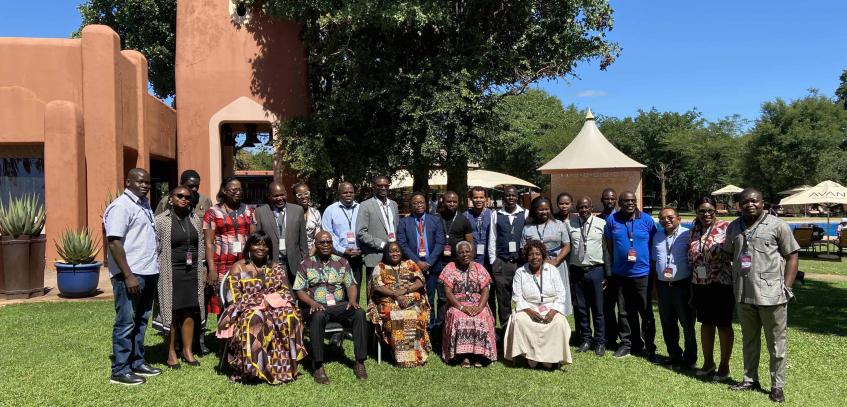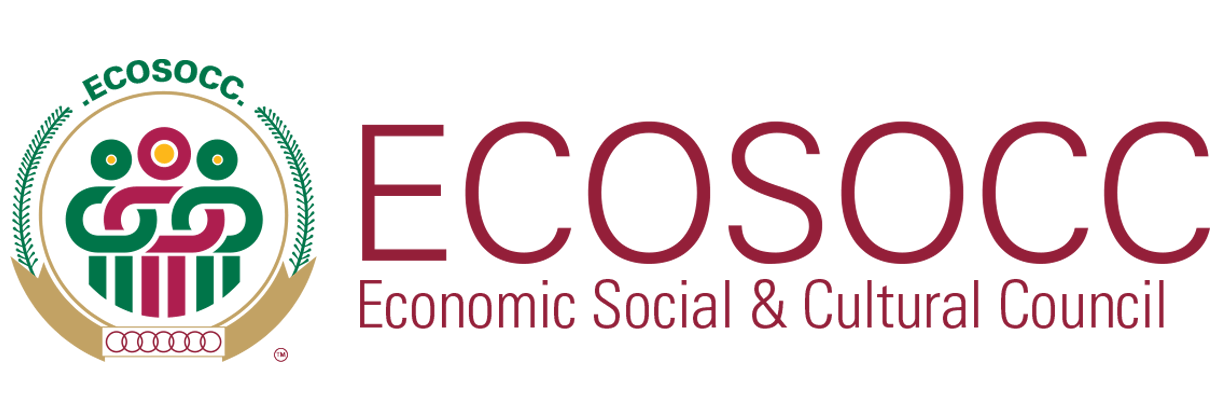The African Union Economic, Social and Cultural Council (ECOSOCC), with the support of the European Union, through Expertise France’s African Governance Architecture Support Project (AGA-SP), held a two days’ workshop in Livingstone, Zambia from 13-14 March 2023 to validate drafts of an ECOSOCC Medium-Term Strategy and Plan of Action for Civil Society Engagement in the African Governance Architecture and an operational manual on Advocacy and Policy Writing in the areas of Democracy, Governance and Human Rights. The validation workshop was the last phase for finalizing the two documents which were also developed with the support of the EU, through Expertise France.
In attendance were representatives of AU Organs, Expertise France, members of the 4th Permanent General Assembly of ECOSOCC, consultants and civil society experts and organizations.
ECOSOCC’s civil society engagement mandate necessitated the restructuring and redevelopment of the strategic direction of its engagement and support to CSOs. One of the main necessities was a strategic document that would guide the medium-term and plan of action for CSOs to engage the African Governance Architecture (AGA) platform members in their various mandates. The Second was the need to enhance CSOs capacities in their various advocacy mandates and roles.
Mr. Kyeretwie Osei, ECOSOCC’s Head of Programs opened the validation workshop virtually, stating that ECOSOCC’s mandate was to promote, enhance and facilitate the work of the AU in the areas of democracy, human rights and governance.
He noted that, “It [facilitating the work of the AU in the areas of democracy, human rights and governance] is not something we are doing on the margins—it is our core function. It is also our mandate as the Civil Society Organ of the AU to enable CSOs to inform AU policies in these areas (democracy, human rights and governance), which involves strengthening CSO capacity in these areas.”
Mr. Boniface Cheembe, Executive Director of the Southern African Centre for the Constructive Resolution of Disputes (SACCORD) and Member of ECOSOCC 4th PGA, reiterated the importance of the meeting in, helping to provide ownership to CSOs; give legitimacy and credibility to the two documents.
Also stressing the importance of ownership, Ms. Priscilla Ankut, Expertise France Representative, addressing civil society organizations (CSOs) in the room stressed that, "this meeting is an opportunity for CSOs to critique and improve the ECOSOCC Medium-Term Strategy and Plan of Action for CSO Engagement in the AGA Platform. This is a document that will be owned by all of you."
Mr. Erick Ngala, Pan-African Advisor in Governance and Management Systems and Managing Partner of Priority Activator, engaged CSOs in an interactive discussion on several ECOSOCC mechanisms for Civil Society engagement with the African Union.
He noted that ECOSOCC's engagement strategy takes a longer-term perspective of building the capacities of CSOs, strengthening the environment for CSO participation in governance and policy change, while applying an integrated and comprehensive approach.
Various Organs of the African Union, mainly the African Governance Architecture (AGA), the Pan-African Parliament (PAP), the African Court on Human and Peoples’ Rights (ACHPR) and the African Charter on the Rights and Welfare of the Child (ACERWC) provided CSOs with a brief overview of their mandates, and how CSOs could engage with them on issues of governance, human rights and democracy.
The second day of the workshop was dedicated to collecting CSO inputs to the ‘ECOSOCC Operational Manual on Advocacy and Policy Writing in the Areas of Democracy, Governance and Human Rights’.
The purpose of the manual is to equip African CSOs with the soft skills needed for effective policy engagement on the issues of democracy, governance, and human rights.
Mr. Osei stressed that advocacy (as a skill) is paramount to CSOs’ capability to enhance democracy, governance and human rights on the Continent, and that advocacy needs to be done from an organized point of view.
The meeting concluded with the validation and production of the Medium-Term Strategy and Plan of Action and Operational Manual.
The next step will take the form of a dissemination strategy for both documents. CSOs and AGA platform members were therefore urged to support the dissemination of the documents for effective use by relevant stakeholders when the documents are available and ready for use.








